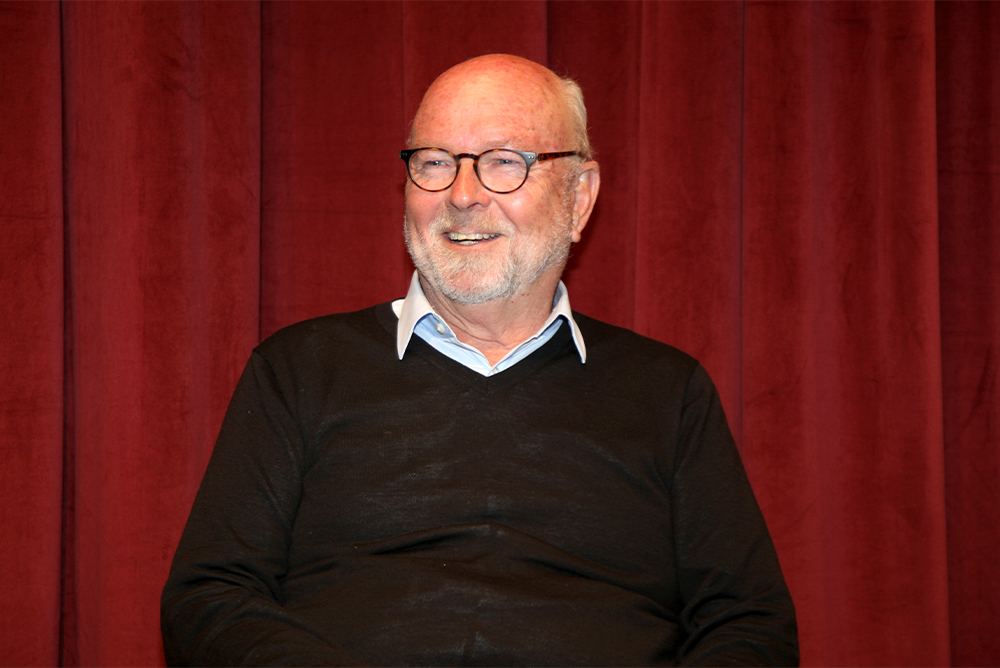
Photo by Aaron Salcido.
Nathan Gardels is the editor-in-chief of Noēma magazine and the co-founder of the Berggruen Institute. Before moderating the Zócalo event “Is This What Direct Democracy Looks Like?”—presented in partnership with the Berggruen Institute, the Public Policy Institute of California, and the Pepperdine School of Public Policy—he sat down in our green room to talk about books, birds, and the most beautiful movie he’s ever watched.
What’s the first memory you have of democratic participation?
I was involved in the anti-war movement during the Vietnam period. I was draft age and people like me were being sent off to fight in Vietnam for war we didn’t support or go to jail for five years. And so it became very clear that if you’re not participating in the process, you’re going to get screwed by it.
What’s the last book you read that you loved?
There are two books that are very similar. And they’re older books, but I’m just reading them. One is by Luis Buñuel the late filmmaker, it’s a book called My Last Sigh. He lived in Mexico City, he was a freelance filmmaker, and he was totally politically incorrect, and he talks about the pleasure of smoking, the pleasure of drinking martinis, that kind of thing. And then the other one is Pablo Neruda’s memoir. It’s an old book, but it’s a new translation. And he talks about his life. But he never talks about the big events in his life, just the small events. So, for example, when he got the Nobel Prize in Literature and went to the ceremony in Stockholm, he doesn’t talk about the ceremony, he doesn’t talk about the speech, all he talks about is the day before, where you go to an empty room, you practice what the setup is going to be, you practice what you’re supposed to say to the king who’s giving you the award, and how silly it all is. It’s a book about little things by a great poet.
What did you want to be growing up?
I wanted to be an ornithologist. I love birds.
What’s your hidden talent?
I’m a cellist, but I wouldn’t call it a talent. I’m a bad cellist—I’m a well-trained, bad cellist. I picked it up when I was young, but then, in my 40s, I picked it up again. Each week I play the Sarabande from the Bach Suite, and then there’s a small piece called “The Song of the Birds” that Pablo Casals always plays. And so I play that and the Sarabande at least once a week.
What do you think is the most beautiful movie of all time?
Enchanted April. It’s about dissatisfied women in cold, rainy, gloomy London who rent a villa in Italy and flower in the Mediterranean climate, in romance, art, personal dignity. That comes to mind. It’s about the falsity of pretension. It’s about lives that fall into ruts. It’s about opening up to new experiences. It’s about strong women and about sensitive men. And it’s in a beautiful Italian Mediterranean climate.



